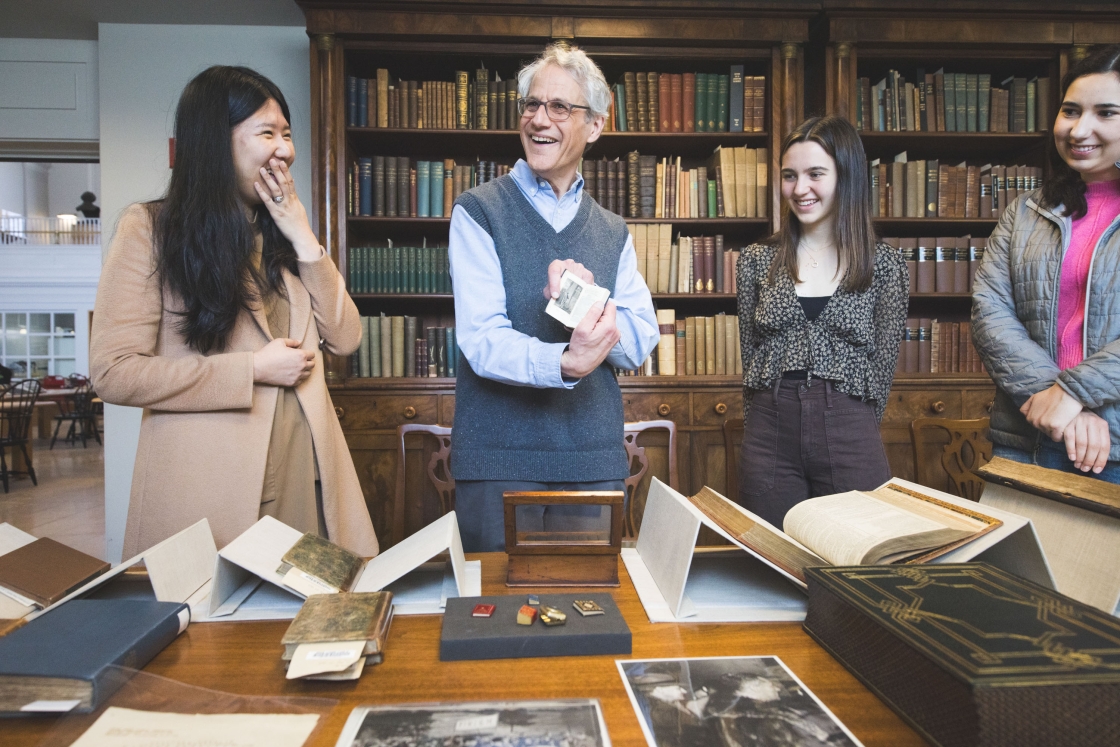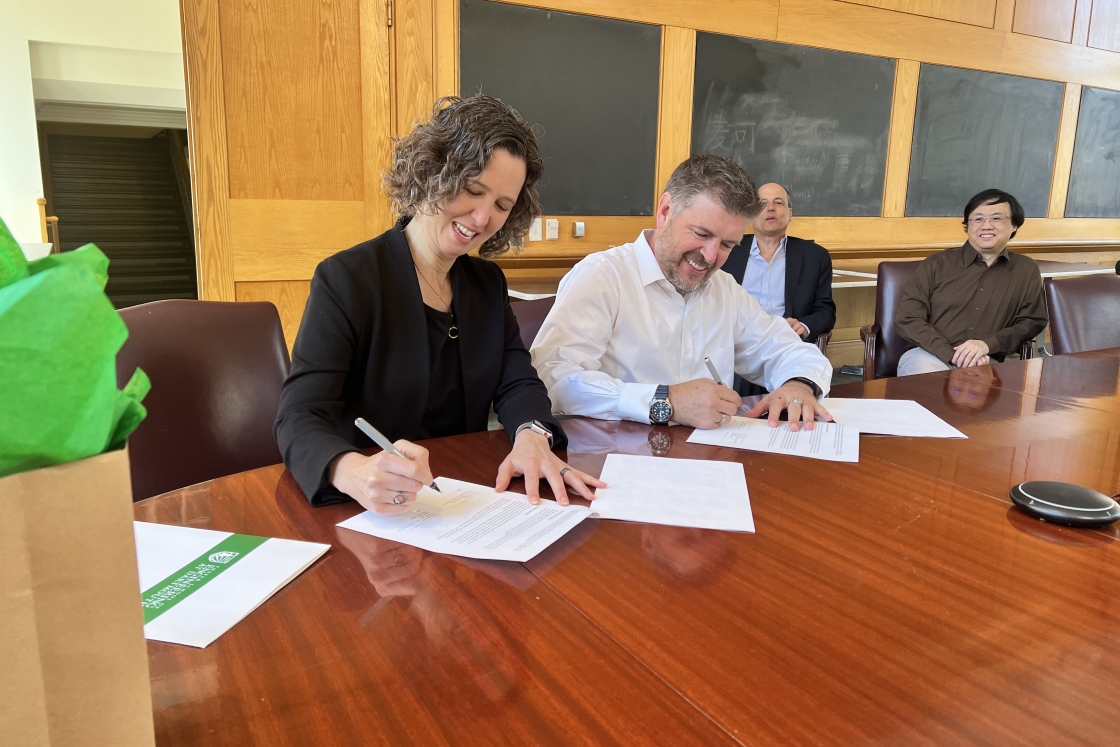
(Photo by Douglas Fraser)
It’s not standard practice to ask engineers to take on a social problem, but that’s just what President Jim Yong Kim and Professor John Collier did recently when they challenged students in an introductory engineering course to come up with solutions to campus binge drinking.
Kim participated at the invitation of John Collier, the Myron Tribus Professor of Engineering Innovation. Collier wanted his students to see how the methods they were learning in class could be applied to a wide variety of problems.
In Dartmouth’s signature introductory engineering course, ENGS 21, students work in teams to define a problem, devise a solution, and build a working prototype.
Some ENGS 21 projects have been so innovative that students have patented their devices en route to bringing them to market—like the stabilizing Gyrobike, which won a Breakthrough Award from Popular Mechanics. ENGS 21 projects have even led to new companies.
See what this term’s class has been up to at the term-end prototype demonstrations, Wednesday, November 30 from 10:30 to noon in Thayer’s GlycoFi Atrium.
“Getting students to think critically using some of their academic skills about a topic that is so relevant to their lives is a powerful exercise,” Kim observes. “Taking such problems to engineering students is also consistent with our work in the National College Health Improvement Project.”
The project, NCHIP for short, was created earlier this year and, in its first undertaking, is tackling the problem of high-risk drinking on college and university campuses through the new Learning Collaborative on High-Risk Drinking. Thirty-two institutions from around the country have joined the Collaborative and are working together to devise methods for bringing intervention to individual drinkers. Their focus is on the delivery of these interventions, ensuring that the right intervention is getting to the right students at the right time.
Kim’s visit to the “Introduction to Engineering” (ENGS 21) class is one of a number of visits he makes each term to engage with students and faculty in a classroom setting.
The president, a public health physician who started his college studies as an engineering major, posed a set of alcohol-related problems to which the students could apply the systematic and analytical methodologies of engineers.
Engineering student Ned Kingsley ’14 reported, “Being able to use the skills that we have been learning all term and apply them to a Dartmouth-specific problem was really interesting, and it definitely changed how I thought about a lot of the issues.”
The students generated specifications for possible solutions, brainstormed alternatives, and then rated the alternatives against their specifications.
Of the dozens of alternatives generated, eight were ultimately recommended by the students. All of those will be considered by the Dartmouth College Health Improvement Program, Dartmouth’s implementation of the Learning Collaborative work.
The alternatives included creating special social spaces for first-year students to reduce drinking in residence halls before going out for the evening—known as pre-gaming—and using healthy competition and shared challenging experiences to increase bonding in student organizations, rather than relying on alcohol to create relationships. In the class, students joked about bonding through the challenges in ENGS 21.
“I think that attacking a subject so prevalent in our lives with the skills we have learned brought the course into a larger perspective. Having President Kim there to facilitate it really got everyone focused on their assigned problem,” says class member Caroline O’Donnell ’14.
“Through the efforts of the class, we were able to identify some things that we are bringing to our campus improvement team, to carry forward and explore further,” says Kim.

